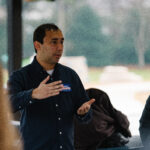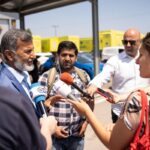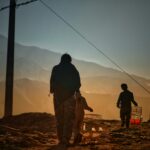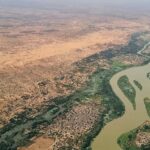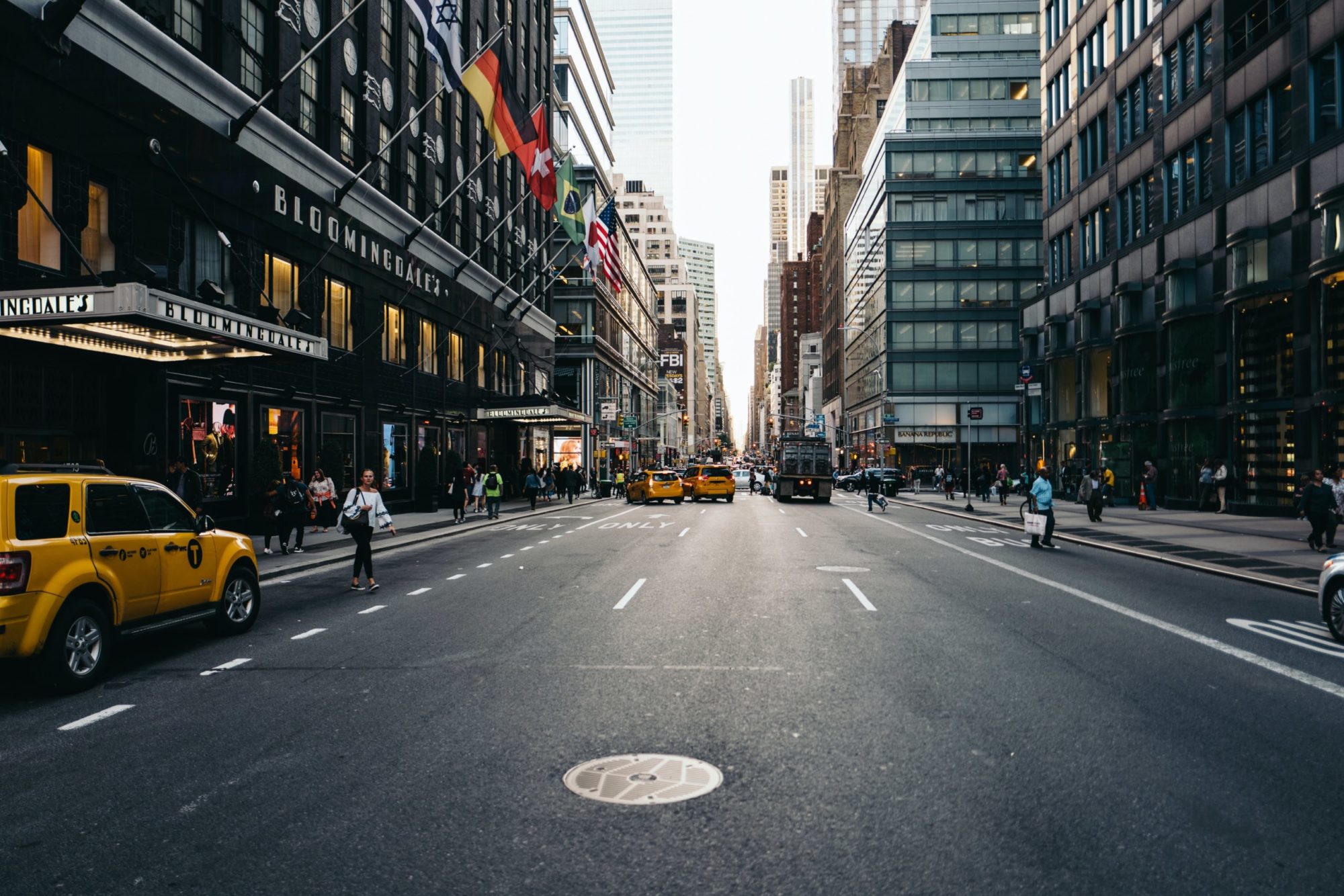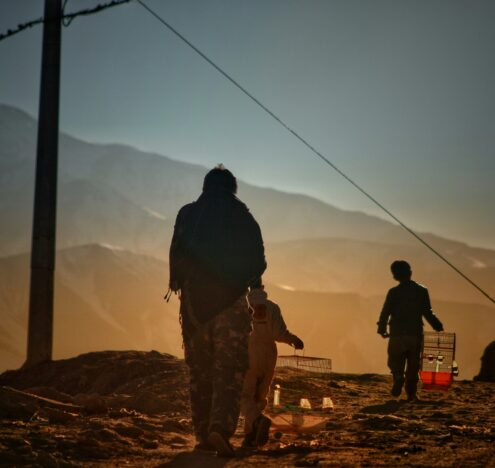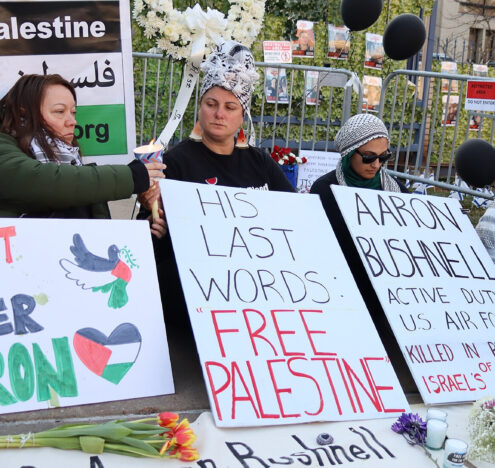As a journalist and later as an Iran researcher for the Atlantic Council, I have met all of Iran’s presidents since the late Akbar Hashemi Rafsanjani. The meetings have provided an opportunity not only to learn a bit more about who they are but to raise uncomfortable issues that might otherwise be filtered out by the Islamic Republic’s formidable propaganda.
So on Wednesday evening, I was part of a small meeting of American think tankers with Iranian President Ebrahim Raisi. The session was supposed to be off the record, but some photographs of the attendees at a New York hotel were taken by the Iranians and made their way onto social media. As a result, I do not feel bound by the ground rules.
THE MEETING
Raisi was “elected” last year in the lowest turnout in Iran’s history; any plausible rival was eliminated by the Council of Guardians, a clerical-led body that vets all candidates for elected office in Iran. His trip to New York, to attend the UN General Assembly’s annual diplomatic gabfest, appears to have been his first not only to New York but to a Western country.
Many Iranians and others protested the fact that he was given a visa — a requirement for the United States as the host of the UN. Raisi has a record of serious human rights abuses going back to the 1980s when, as a young prosecutor, he signed off on the summary execution of 5,000 political prisoners at the end of the Iran–Iraq war. Further fuel for protests came from a new outrage that occurred last week when a young woman in Tehran, named Mahsa Amini, was beaten to death by the so-called morality police. It is unlikely that Raisi, cossetted in his hotel and shuttled back and forth across First Avenue to the UN, saw or heard any of the New York protests. In our meeting, however, when it was my turn to speak, it was the first question I raised.
How could he have given a speech to the General Assembly earlier that day in which he said that Iranians “are defenders of a fight against injustice in all of its forms … no matter where it may occur” when Iran brutally harasses women for showing a few strands of hair? Why was Iran shutting down the Internet to prevent the world from seeing the massive protest demonstrations that followed the death of Amini in police custody and that are continuing?
“Who said she was killed by the morality police?” Raisi responded. “Her father,” I replied. Raisi said he hadn’t heard that from Amini’s father, who might have been too terrified to say it when the president called last week to offer condolences.
“Different organizations are carrying on investigations,” Raisi continued. Then he paradoxically asserted that “the coroner said their analyses showed no signs of a killing” and that a parliamentary group had also found “no trace of violence or beating on the victim.” Then he contradicted himself again by saying, “I will not draw a conclusion but allow the judiciary to complete the investigation. Finally, he added, “It was said she had two previous brain surgeries.”
Her family has categorically denied that Amini was in poor health.
When animated, Raisi tended to shout as though volume could make up for a lack of convincing answers.
Raisi went on to point out the large numbers of homeless individuals in the United States and the number of women he said had been killed in Britain. He asked how many people in US prisons suffer strokes. He mentioned obliquely the murder of US resident journalist Jamal Khashoggi in Istanbul (by Saudi killers). All this whataboutism seemed a rather clumsy attempt to deflect criticism of Iran. He concluded by saying “whomever has committed an egregious error, that crime will be addressed.”
On other issues, too, Raisi gave answers that often blurred more than clarified. He insisted — as he had in his UN speech — that Iran is still interested in a revival of the moribund Joint Comprehensive Plan of Action (JCPOA or simply, the Iran nuclear deal) but inveighed against Europe and the United States for what he called “political pressure” on the International Atomic Energy Agency (IAEA) to investigate the origin of uranium at three undeclared sites. The IAEA had given Iran 15 clean bills of health after the nuclear deal was implemented in 2016, Raisi said. But that was before Iran started violating the agreement in 2019 following the US withdrawal in 2018 and the reimposition of sanctions. Iran has progressively reduced the IAEA’s ability to monitor Iranian nuclear facilities to the point where IAEA director general Rafael Grossi has said he can no longer declare with confidence that Iran’s program is purely peaceful.
Iran has repeatedly denied that it seeks nuclear weapons, something Raisi reiterated on Wednesday night. But Iran, which had seemed close to accepting an agreement to return to compliance with the nuclear deal in return for the United States lifting nuclear-related sanctions, now demands that all IAEA probes of its past activities end first. It has also demanded guarantees that a future US president will not withdraw from the agreement again. Mark Fitzpatrick, a former US Department of State official and nuclear expert, told Raisi that these two demands were not “logical” and that if Iran wanted to restore the agreement, it should drop them.
Raisi, unlike his predecessors, allowed a second round of comments and questions. I asked why Iran was putting all its eggs in a Russian and Chinese basket when Russia is losing the war in Ukraine and China is experiencing economic difficulties. Raisi asserted that was not the case and that Iran still wanted a “balanced” foreign policy and still espoused the view of the late Ayatollah Ruhollah Khomeini, that Iran should not be aligned with either “East or West.”
A cleric who prior to assuming the presidency had spent his career as a prosecutor, Raisi made no opening remarks, unlike his predecessors. Instead, the Iranian Mission to the UN showed a video celebrating the beauty and accomplishments of Iran under the Islamic Republic and highlighting the failings of the United States.
UNCONVINCING ANSWERS
Asked how Raisi compared to other Iranian presidents he had met at similar gatherings, Fitzpatrick said, Raisi “may have lacked the charisma of his predecessor [Hassan Rouhani] but was voluble and engaging, welcoming a back and forth unlike previous such events where there was little chance for follow-up.” On the nuclear issue, however, “he did not appear to have a good grip on details,” Fitzpatrick said.
This writer thought it was useful that Raisi listened to criticism and didn’t immediately counter with a critique of his own as Mahmoud Ahmadinejad, Iran’s president from 2005–2013, invariably used to do. When animated, Raisi tended to shout as though volume could make up for a lack of convincing answers.
What Raisi made of all of us remains unknown. However, right after our meeting, he canceled a scheduled television interview with the well-known journalist Christiane Amanpour after she refused to don a headscarf. For the record, none of the women in the think tank meeting with Raisi wore one.
Barbara Slavin directs the Future of Iran Initiative at the Atlantic Council.






